第23章 ON MR.LOCKE(2)
It was in this chapter he presumed to advance,but very modestly,the following words:"We shall,perhaps,never be capable of knowing whether a being,purely material,thinks or not."This sage assertion was,by more divines than one,looked upon as a scandalous declaration that the soul is material and mortal.Some Englishmen,devout after their way,sounded an alarm.The superstitious are the same in society as cowards in an army;they themselves are seized with a panic fear,and communicate it to others.It was loudly exclaimed that Mr.Locke intended to destroy religion;nevertheless,religion had nothing to do in the affair,it being a question purely philosophical,altogether independent of faith and revelation.Mr.
Locke's opponents needed but to examine,calmly and impartially,whether the declaring that matter can think,implies a contradiction;and whether God is able to communicate thought to matter.But divines are too apt to begin their declarations with saying that God is offended when people differ from them in opinion;in which they too much resemble the bad poets,who used to declare publicly that Boileau spake irreverently of Louis XIV.,because he ridiculed their stupid productions.Bishop Stillingfleet got the reputation of a calm and unprejudiced divine because he did not expressly make use of injurious terms in his dispute with Mr.Locke.
That divine entered the lists against him,but was defeated;for he argued as a schoolman,and Locke as a philosopher,who was perfectly acquainted with the strong as well as the weak side of the human mind,and who fought with weapons whose temper he knew.If I might presume to give my opinion on so delicate a subject after Mr.Locke,I would say,that men have long disputed on the nature and the immortality of the soul.With regard to its immortality,it is impossible to give a demonstration of it,since its nature is still the subject of controversy;which,however,must be thoroughly understood before a person can be able to determine whether it be immortal or not.Human reason is so little able,merely by its own strength,to demonstrate the immortality of the soul,that it was absolutely necessary religion should reveal it to us.It is of advantage to society in general,that mankind should believe the soul to be immortal;faith commands us to do this;nothing more is required,and the matter is cleared up at once.But it is otherwise with respect to its nature;it is of little importance to religion,which only requires the soul to be virtuous,whatever substance it may be made of.It is a clock which is given us to regulate,but the artist has not told us of what materials the spring of this chock is composed.
I am a body,and,I think,that's all I know of the matter.Shall Iascribe to an unknown cause,what I can so easily impute to the only second cause I am acquainted with?Here all the school philosophers interrupt me with their arguments,and declare that there is only extension and solidity in bodies,and that there they can have nothing but motion and figure.Now motion,figure,extension and solidity cannot form a thought,and consequently the soul cannot be matter.All this so often repeated mighty series of reasoning,amounts to no more than this:I am absolutely ignorant what matter is;I guess,but imperfectly,some properties of it;now Iabsolutely cannot tell whether these properties may be joined to thought.As I therefore know nothing,I maintain positively that matter cannot think.In this manner do the schools reason.
Mr.Locke addressed these gentlemen in the candid,sincere manner following:At least confess yourselves to be as ignorant as I.